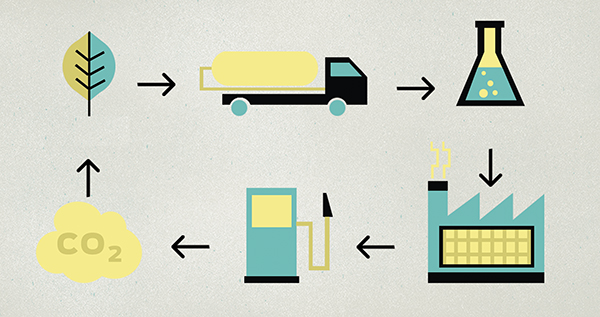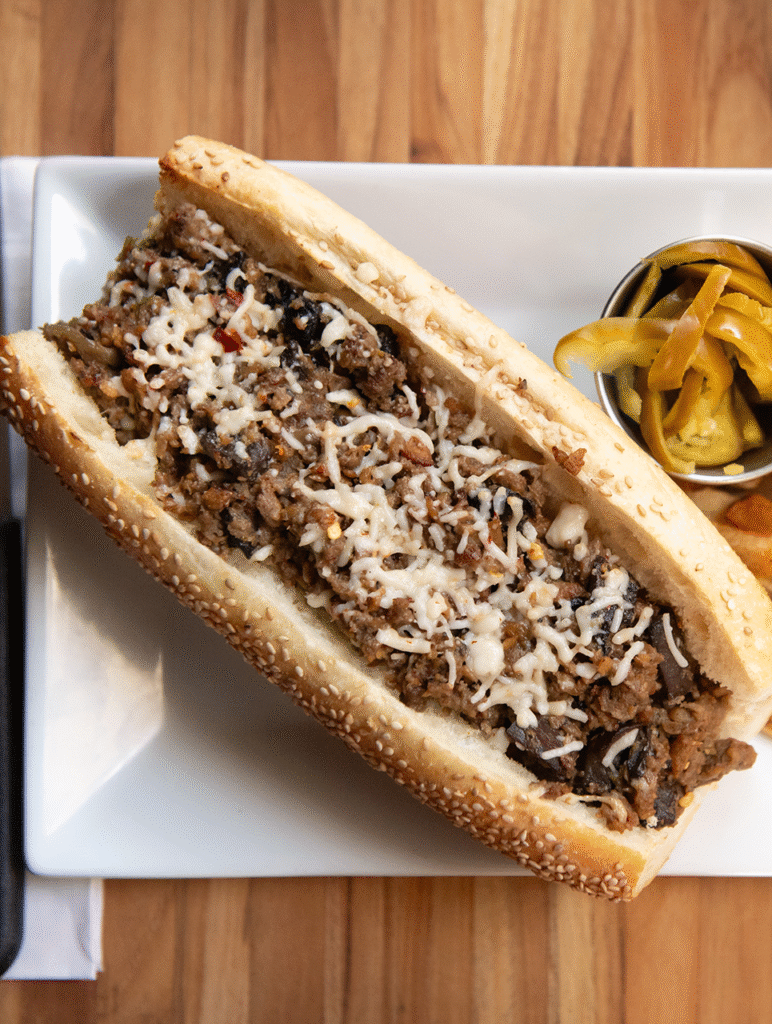Illustration by Kathleen White
Oil Change
by Matt Bevilacqua
For many people, excess cooking oil is something to pour down the drain after preparing a meal. But at Leigh Maida’s restaurants, all that greasy liquid has another destination: gas tanks, where it will power cars rather than block sewer pipes.
“You have to do something with the used oil,” says Maida, one of the owners behind a quintet of well-regarded Philadelphia eateries. “That it’s possible to give it to anyone who will do something with it seems [like] a lucky break to me.”
The chefs at each of her restaurants—Memphis Taproom, Strangelove’s, Local 44, Clarkville and Coeur—gather their used cooking oil in 55-gallon drums, which they place outside a few times a week. Then trucks bearing the name Waste Oil Recyclers pick it up, after which it will, eventually, become fuel.
“Our cooking oil gets processed and then basically sold to a biodiesel refinery,” explains Brendan Steer, director of sales and co-owner at Waste Oil Recyclers.
The Modena, Pennsylvania-based company started in 2006 with “a credit card and a van,” Steer says. Today, its fleet of 12 trucks operates from Atlantic City to Harrisburg and from Baltimore to Scranton. (The company also seeks to expand to Southern Delaware and east to Chambersburg, Pennsylvania.) Waste Oil Recyclers customers include restaurants, universities, hospitals and most of the stadiums in the South Philadelphia Sports Complex.
“Really, anyone who fries food,” says Brenda McNeil, director of marketing.
The use of biofuel goes back to ancient times, and vegetable oil has taken turns powering streetlamps in the 1700s and diesel engines in the 1920s, according to the 2013 book “Biofuel Crops: Production, Physiology and Genetics.” Petroleum became king in the mid-20th century, but the volatility of the global crude oil market has led countries to turn back to biofuel over the last dozen years.
Nationally, the practice has grown in an explosive way. According to a January report from the market research firm IBISWorld, cooking oil recycling is a $2 billion a year industry with almost 400 businesses employing more than 4,000 people in the U.S. The market grew by 5.8 percent annually between 2010 and 2015 and is projected to continue growing through the end of the decade—thanks in no small part to the EPA’s Renewable Fuel Standard program, which requires a certain share of transportation fuel sold in the country to be renewable.
A handful of massive companies, such as Darling International and Baker Commodities, dominate the industry. But Steer says that Waste Oil Recyclers cornered the Southeastern Pennsylvania market precisely because it maintained a local scope.
“We were a smaller, more nimble company that focused on service and hammered home our promise of the oil being recycled into domestically produced renewable fuels,” he says.
For Maida, who became a customer in 2008, getting in on the trend seemed like a no-brainer. “We almost never have to think about the oil being taken away,” she says. “It’s a pretty easy way to be green.”










